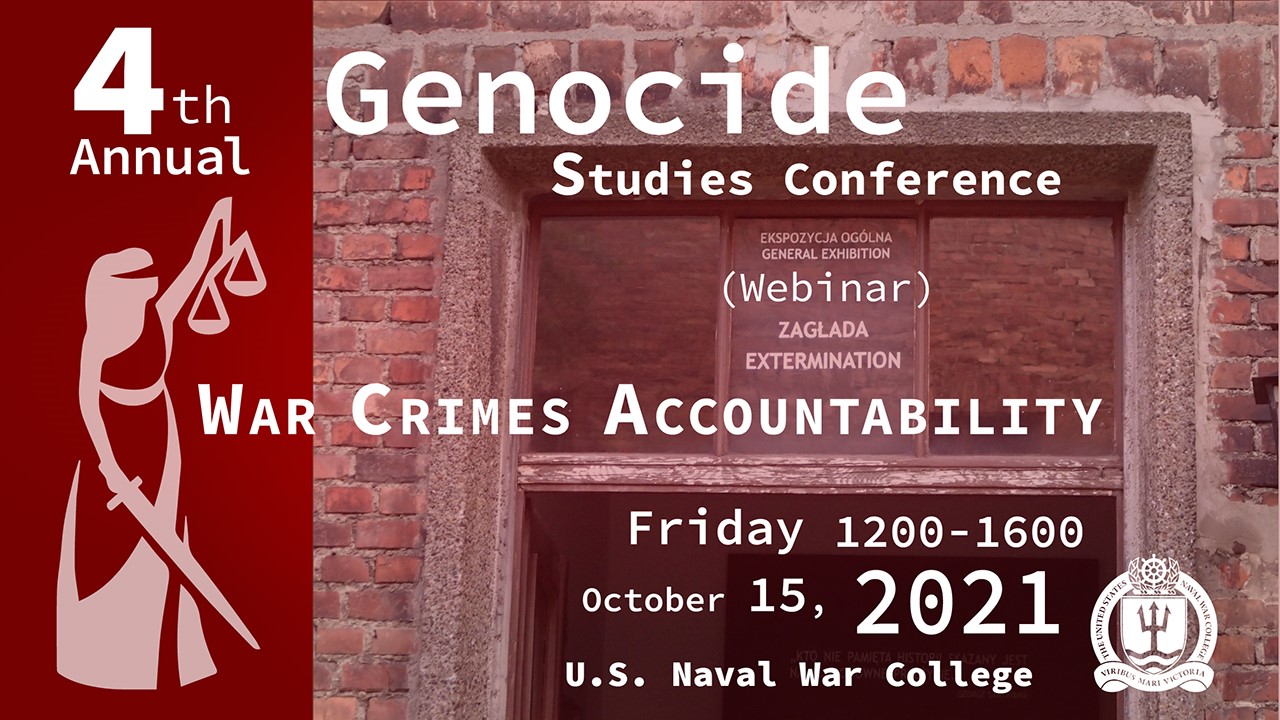U.S. Naval War College Hosts 4th Annual Genocide Studies Conference

Newport, R.I. - The U.S. Naval War College (NWC) hosted its fourth annual genocide studies conference Oct. 15 in the virtual environment. The conference gathered scholars for a panel discussion focused on genocidal ideologies, warning signs of genocide and genocide prevention. This year’s conference theme was war crimes accountability.
Rear Adm. Shoshana S. Chatfield, Naval War College president, provided recorded pre-recorded remarks for the conference.
“My challenge to all of you today is to think outside your own area of specialty or academic discipline," said Chatfield. “Listen closely to each other. Think critically about these important topics and provide feedback to one another to make your discussion today as meaningful as possible as we together drive toward better understanding and a more effective, in principle, response to present and future atrocities.”
Naval War College Associate Professor Hayat Alvi organized the conference and stressed the importance of building awareness and prevention of genocide.
“Genocide is alive and well, and many state and non-state actors are employing genocidal acts and mass atrocities globally,” said Alvi. “It is our job to build an awareness of these horrific realities in the world today, and the genocide studies annual conference contribute to building this awareness and helping the prevention of genocide.”
Laura Graham, assistant counsel, FBI and former executive director, Yemen Accountability Project at Case Western Reserve School of Law, discussed how to build a successful prosecution against perpetrators.
“So already we have the cards stacked against us, but I believe and groups like the Yemen Accountability Project are working toward documenting evidence of these crimes because there will eventually be a time at which there will be an ad hoc tribunal or there may be other prospects for prosecution,” said Graham. “And so it’s so very important to document evidence, so we don’t lose this.”
NWC Associate Professor Donald J. Thieme, Ph.D. served as a panelist and explained the importance of the event.
“This symposium is important because it brings together scholars and practitioners to discuss the difficult issues of how to apply power, where and when it’s required and amount of force to prevent or stop mass atrocities, crimes against humanity and genocide,” said Thieme.
Alvi ended with a call to action.
“Whether we are civilian or military personnel and no matter what job title we bear, it is our moral, ethical and professional responsibility to call out perpetrators of genocide, crimes against humanity and mass atrocities,” said Alvi. “There is so much at stake if we fail in this endeavor.”
You can view the conference on NWC’s YouTube page here: 4th Annual Genocide Studies Conference
